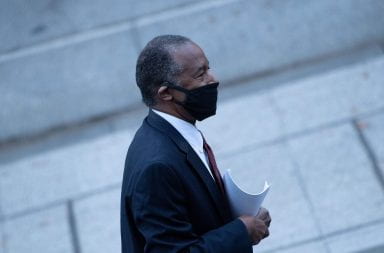Republican presidential candidate Donald Trump is set to visit Columbus for a private event on Thursday, but it’s not the first time his campaign has tried to organized a closed-to-the-public rally in Columbus.

Republican presidential candidate Donald Trump speaks at a press conference before a public signing for his new book Crippled America: How to Make America Great Again, on Nov. 3. Credit: Courtesy of TNS
As The Lantern reported last month, Trump’s campaign signed a contract to use space in the Schottenstein Center for a rally scheduled for Sept. 22, but then cancelled the event without giving a reason for as to why.
The contract for the event, provided to The Lantern by Ohio State, states that the cost of that event was slated to be $33,800. It was to take place in the Women’s Practice Gym, the maximum occupancy of which is 997 people, according to the fire code notice posted outside the room.
Final capacity, the contract stated, was to be determined by OSU’s Department of Public Safety, the state fire code and OSU policy.
A representative for Trump’s Ohio campaign did not return a request for comment regarding the reasons behind the cancellation or the estimated attendance of the rally. OSU’s Department of Public Safety referred The Lantern back to the Trump campaign.
The contract was signed on Sept. 21, and cancelled on Sept. 22. Because of the cancellation, the Trump campaign did not have to pay the full $33,800, Emily Caldwell, a university spokeswoman, said in an email.
“The campaign was charged only for the cost of event-related expenses that could not be canceled before the rally itself was called off,” Caldwell said.
Caldwell said although OSU did not have a specific breakdown for how much the campaign paid the university for the cancelled event, costs were related to “internet/IT infrastructure set-up for media use,” and “labor costs for set-up.”
Athletic teams using the Schott were allowed to practice as usual until 2 p.m. the day of the event, the contract stated. Athletes and coaches were also subject to search upon entering the building, “as dictated by the United States Secret Service.”
The contract also stated that OSU does not endorse politicians.
“Producer acknowledges and agrees that the University does not endorse political candidates for public office,” the contract states. “Producer shall make no public statements, interferences, or representations to the contrary.”


